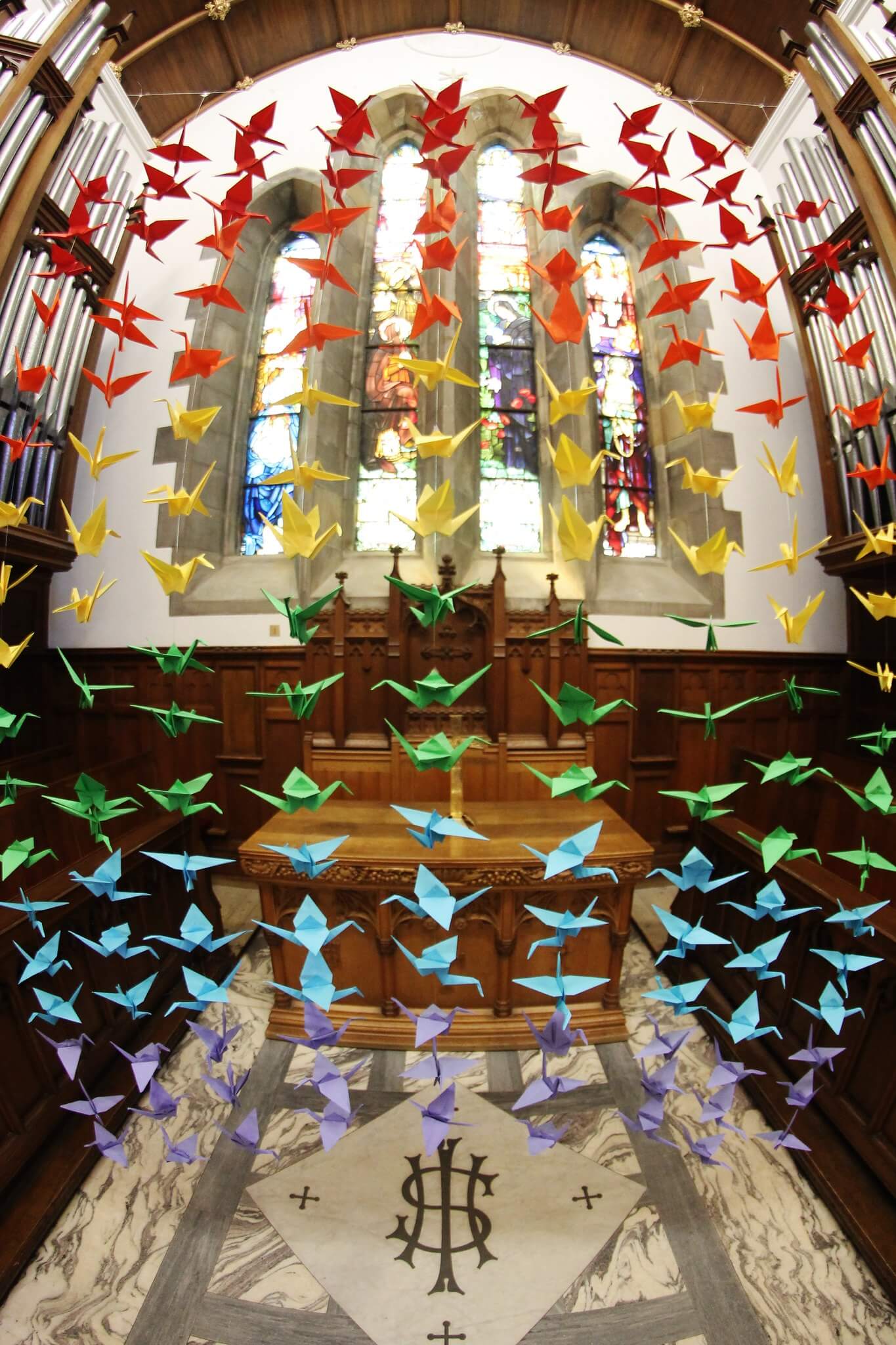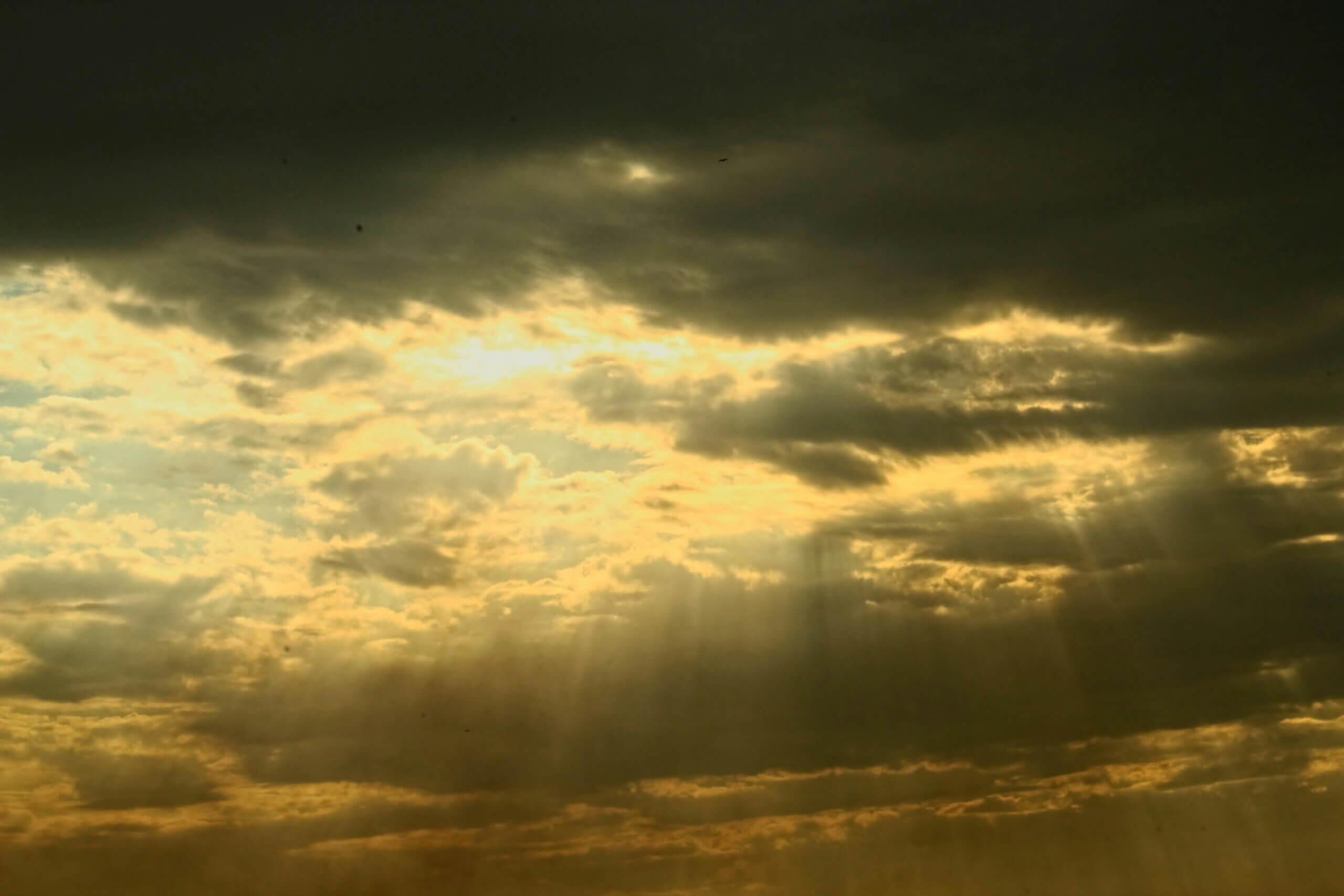 ADVENT SUNDAY, 1868.
ADVENT SUNDAY, 1868.
BY
WILLIAM STEWART DARLING,
RECTOR ASSISTANT.
Isaiah II, 19.
“And they shall go into the holes of the rocks and into the caves of the
earth for fear of the Lord, for the glory of His majesty when He
ariseth to shake terribly the earth,”
Again, my brethren, the Advent season with all its solemn
warnings is upon us. The lesson from which the text is taken
though referring in its primary application to the judgment
which God inflicted upon His ancient people for their multi-
plied rebellions, will have a future and more complete fulfil-
ment at the judgment day, and hence the appropriateness of
its selection for the present season. The whole tone of the
Church’s services is changed — they no longer speak to us as
they have lately done, of the calm, ordinary, everyday du-
ties which man owes to his fellow man, for the love of Christ,
but they startle us with the thought of judgment and the
terrors of the last great day. They remind us that He who
once came in great humility to redeem, will come again in
glorious majesty to judge the world. Concerning this coming
there is no word of doubt, no tone of uncertainty, no trace of
hesitation. He will surely come; as surely as the shades
of night are now brooding over us; as surely as we are now
living men and women, so surely every eye shall see Him,
There is no possibility of escaping from those dread solemni-
ties, no whither to flee where His hand shall not reach
us. From the holes of the rocks, from the caves of the
earth, yea, though the hills should fall on us and the moun-
tains should cover us, we shall be brought forth to receive
the just reward of our deeds. From the still graves of quiet
churchyards; from fields of mortal strife, where thousands
upon thousands have found their last resting place; from
the depths of the unfathomed sea, we shall be summoned;
and at that summons, both the earth and ocean shall give
up their dead, and in the twinkling of an eye the living
shall be changed. Whoever, whatever, wherever we may be
we shall be called with a word of power that shall prove to be
irresistible. Though our ears may have been for ages deaf
even to the voices of the thunder or the earthquake, that
voice which shall then ring throughout the world shall
arouse us from our slumber, and whether we will or not we
must come forth— you, and you, and I, to be judged for the
things done in the body. Oh, what a dream, do we for the
most part hold this to be ! How hard to give it anything
like reality ! We think of it as something which may, per-
haps, happen to others, but hardly as a scene in which we shall
take part. But it is not so, it is not so my brethren! We
shall see it in all its dread solemnity — it will one day
— we cannot tell what day — break upon us either amid our
workday ongoings, or it shall arouse us from our sleep even if
it has lasted a thousand years, and oh, what a wakening that
will be! To see the sign of the Son of Man in heaven, and
hear the voice of the Archangel and the trump of God de-
claring that time shallt be no longer. Oh, how strange a
being is man, who, with all this before him — with the abso-
lute, inevitable certainty of judgment to come, can yet
put it out of his thoughts, and suffer his mind, and soul and
heart, to be taken up, absorbed and carried away by the
trifles of this world, the pleasures, the profits, the cares and
the sins of a life like this, so fleeting, so uncertain, so
unsatisfactory, even at the very best!
And this is, perhaps, still more wonderful, when we come
to remember that judgment is not only certain to come, but
that the time of its coming is uncertain. The whole tenor
of the New Testament warns us to watch, on this very
ground, that we know not when the Son of Man cometh.
It speaks to us of the perpetual duty, never to be relaxed,
of watching for the day of God. It dwells on the necessity
of being ready, not so much for death, as for judgment, and
it warns us that our Lord may come at a time when we
think not, and at an hour when we are not aware. I have
seen it recently pointed out that in this, as in so many other
particulars, we have fallen into unscriptural ways, both of
speech and thought. “We talk of death being the inevitable
end of all men, a fact which the Bible does not countenance,
inasmuch as it sets forth the coming of the Lord to judg-
ment as the event which shall startle multitudes of living
men, amidst their usual avocations, so that a thousand mil-
lions of our race shall probably never know by experience
what is meant by death. Yet this momentous event is little
thought of. We are apt to say ” Where is the promise of
His coming, for all things continue as they were from the
foundation of the world,” and this unbelief of the nearness
of His coming is foretold as one of the signs that forewarns
us that when men are saying peace and safety, then the
sudden destruction which shall fall upon unbelievers at the
coming of the Lord, may be close at hand.
We, my brethren, have fallen upon strange times, and to
many a thoughtful mind they look as though we were upon
the verge of the last days. I cannot now advert to what
these tokens are, but seeing that lie who will come, may
come at evening or midnight, at cock crowing or in the
morning, therefore let us watch and turn from our sins, and
seek the Lord while He may be found, in those fuller and
more frequent services by which the Church marks her
solemn Advent-tide. For think how terrible are to be the
consequences of that coming, to multitudes, whensoever it
shall be. They shall go into the holes of the rocks and into
the caves of the earth for Fear of the Lord, and for the
glory of His Majesty when He ariseth to shake terribly the
earth. And why this terror which shall in that day seize
upon the souls of the guilty and unbelieving? Why, but
because of the deep and bitter reproaches of their own
consciences, warning them with no uncertain voice that
judgment for them can end only in condemnation. That
voice within, often makes men tremble even now — but O,
with what awful and irresistible conviction will it speak on
that day. And how will it be with us then? How would
it be with us now if upon the darkness of this present night
we should see the sudden dawning of the eternal day, or if
to-morrow we were to be startled amidst our worldly em-
ployments by a light above the brightness of the sun, and
we were to behold all heaven aglow with the radiant forms
of the angel host who shall surround the Son of Man when
He shall come to judgment ? Should we be able to lift up
our heads with a solemn joy, in which awe should be tem-
pered with thankfulness, that our warfare was at length
accomplished, and that our redemption, our full redemption
from sin, and evil, and suffering, from weariness and disap-
pointment, and dissatisfaction had at length drawn nigh?
Or should we flee to the holes of the rocks and to the caves
of the earth, and pray the hills to fall on us and the moun-
tains to cover us from the wrath of the Lamb whose love
and long suffering we have neglected or despised?
And who are those who in that day of wrath shall flee away
in terror, and with despairing voice and gesture implore the
blessing of annihilation? Those, brethren, who are openly
profane — those who are deliberately wicked — those who live
without scruple in drunkenness, sensuality, and vice — those
who mock at holy things, and scoff at righteousness and the
love of God. These and such as these, however bold and
daring now in all that is evil, shall flee from the coming of
the Son of Man with terror for which words can find no
utterance, and yet they shall flee in vain. Those too, whose
only standard of right and wrong is that of this evil world
— who labor for its gains and live for its pleasures — who
scruple not for a moment to break the law of God, if it will
advance their interest or add to their enjoyment — who hesi-
tate not at fraud or vice if they can so practice them as to
escape the censure of the world : the plausible over-reacher
in business — the secret sensualist — the adroit liar — these
shall in that day have the flimsy veil with which they seek
to conceal their true character rent away for ever, and they
shall vainly seek to escape from the wrath of God and of
the Lamb.
Those too who would shrink from such a course as these
pursue, but who nevertheless have no higher rule of conduct
than worldly honor or public opinion; who, though not
conspicuously wanting in the ordinary duties which they
owe to man, are manifestly wanting in the devotional duties
which they owe to God ; who have no love for, no longing
after heavenly things, and whose regard for, or attention to
any religious duties is prompted by a regard for respecta-
bility rather than by the fear of God, — what can these do
but flee from Him “Whom they have neither loved nor served,
to the holes of the rocks and to the caves of the earth for
fear of the Lord and for the glory of His majesty when He
ariseth to shake terribly the earth ?
Those too who are practising the sad self-deception upon
themselves of being satisfied with some system of religious
doctrine, or the observance or non-observance of some re-
ligious forms, without any real deep seated principle in the
heart or any real practical consistency in the life, what can
tliere be for them in that day but terror, passing words. Oh,
my Christian Brethren, let us be anxiously upon our guard
against a delusion so dangerous as this. Let us beware of
saying Lord, Lord, if our hearts convict us of not trying to
do the things which our Lord commands. Let us beware
how we comfort ourselves with attendance upon religious
rites, even the highest and holiest sacrament of the Gospel
if we are not moved thereto by love and longing to grow,
through the grace of the Lord, into the image of the Saviour’s
holiness.
And now, do we discover any features of our own charac-
ter in these several classes ? The openly wicked, the se-
cretly sinful, the worldly man destitute of the love of Christ,
or the self deluded Christian who is vainly putting the
profession or the form of Godliness in the place of the power
of it ? If so let us awake from our sins ere it be too late.
We know not how soon it may be too late. The rolling of
the Lord’s chariot wheels as He comes to Judgement might
arouse us this very night, and O then it will be too late to
cry for mercy when it is the time of Judgement. O men of
evil lives! who put the thought of God far from you, what
will your wickedness profit when lie comes to take ven-
geance on those who know Him not, and the day of repent-
ance is forever past and over? O men of double
dealing and of hidden sin! what shall we do in
that day when every disguise shall be stripped away,
and ye shall stand naked and shuddering before the
great White Throne? O men of worldly devices and
worldly honor! who have never thought of, nor cared for the
love of God, what shall we answer Him who died that He
might teach you to do right, not for your own reputation but
for the love of Him? O men of zeal for some special sys-
tem of doctrine, or for or against some outward form of
worship — who have praised God with your lips while you
have dishonored Him in your lives! how shall ye endure
that day when you shall stand before Him in your true
character to whom you have come so near but whom still
you have never known ? Oh, my Christian Brethren, there
is but one way for us all, but one refuge from the terrors of
the Judgment, and that is to prepare for the coming of the
Lord while the day of salvation lasteth. We can none of
us have any one to flee unto for safety, but One alone : He
Who will one day be our Judge, from the face of Whose
majesty the heavens and earth shall flee away. He is still
our most merciful Redeemer, bearing with us in our sins,
patient with us in our iniquities, seeking by His wondrous
long suffering to lead us to repentance. He yearns over us
with a compassion too deep for human lips to tell. He en-
treats you, by us, to turn from all evil and to be reconciled
to God. He strives within us by His blessed Spirit seeking
to turn the disobedient to the wisdom of the just ; longing
to save, reluctant to condemn ; very pitiful and of tender
mercy, not willing that any should perish but that all
should come to repentance.
But this coming to Him must be a definite coming. We
must not be content with a mere internal act of the mind
which people call ” casting ourselves upon Christ.” We
must come to Him through His own ordinances appointed
for this very thing. He must be sought in the prayers and
acts of His own Body, the Church. “Come ye,” as it is
written in this very chapter, ” and let us go up to the
Mountain of the Lord, to the House of the God of Jacob,
and He will teach us of His ways, and we will walk in His
paths.” And to this end we multiply our services during
the Advent Season, that men may thus seek Him and find
Him Who is our only hope — and may thus be taught to
celebrate the commemoration of His first coming with a
sacred joy, by gathering round His Holy Table and thus
grow meet to sit down at the Marriage Supper of the
Lamb.






